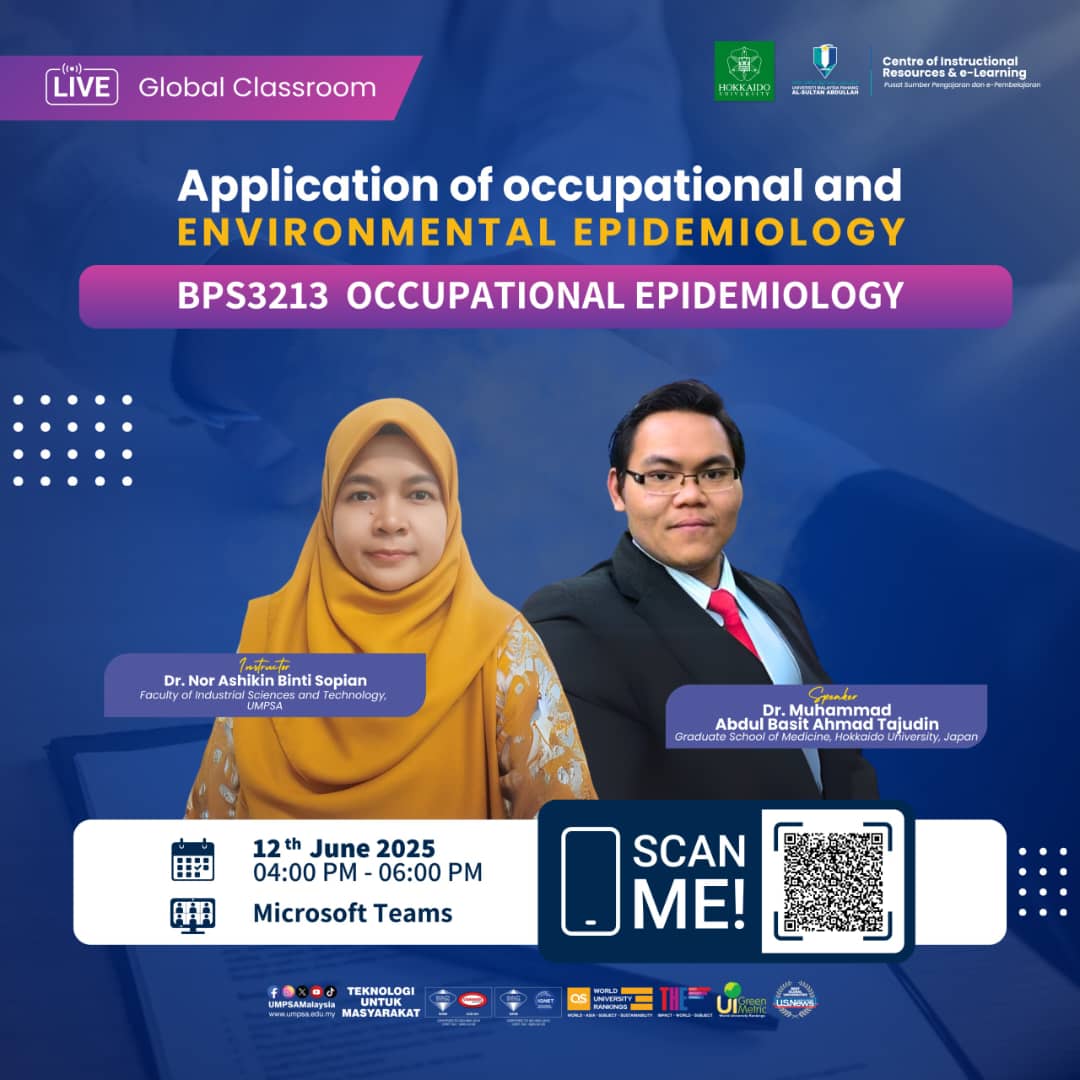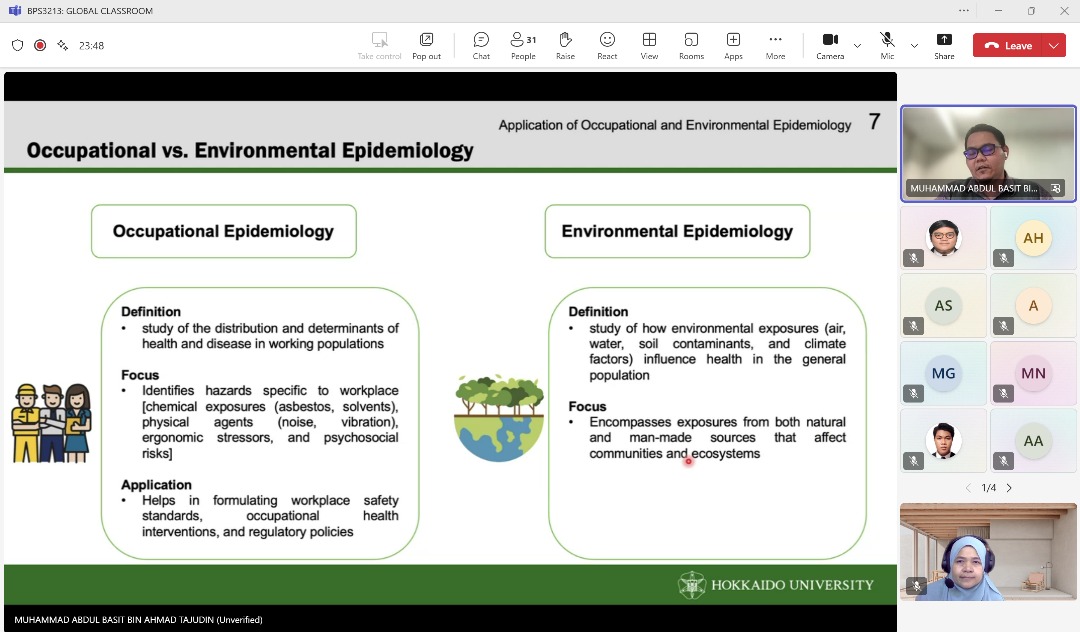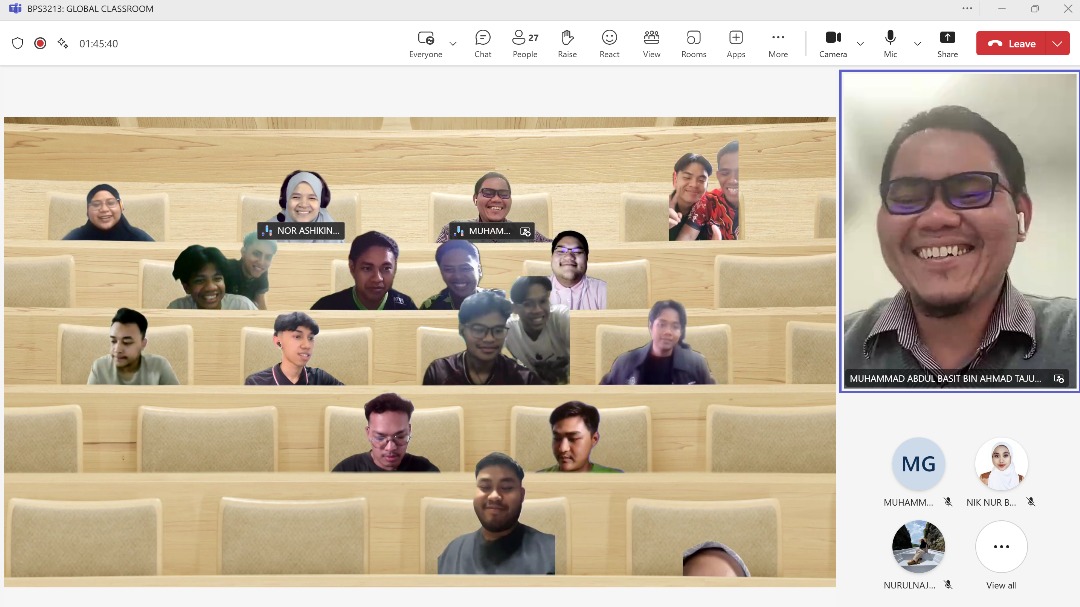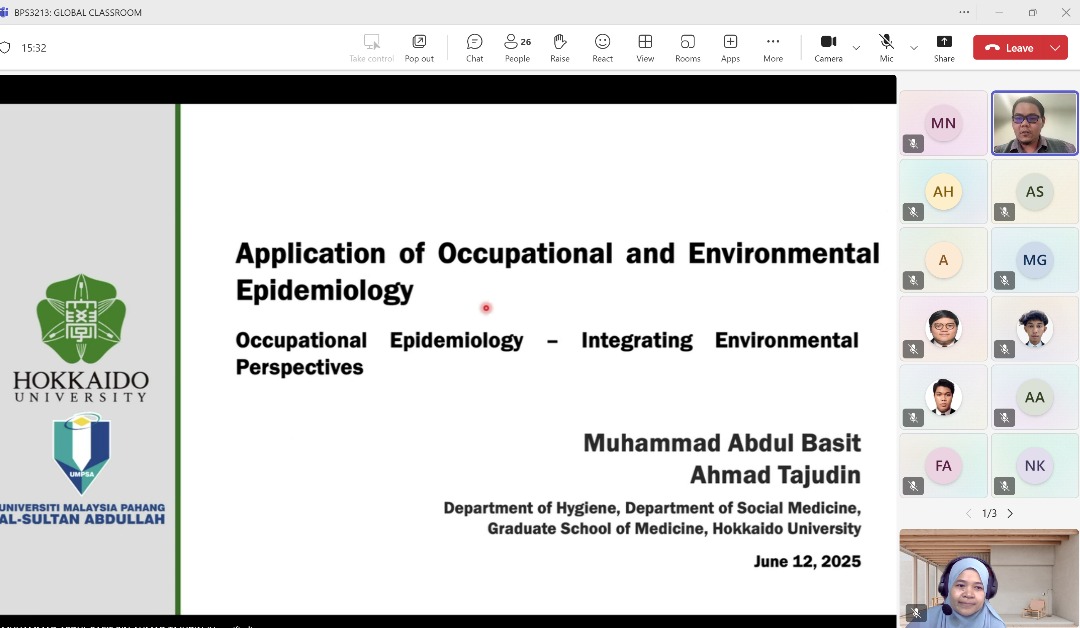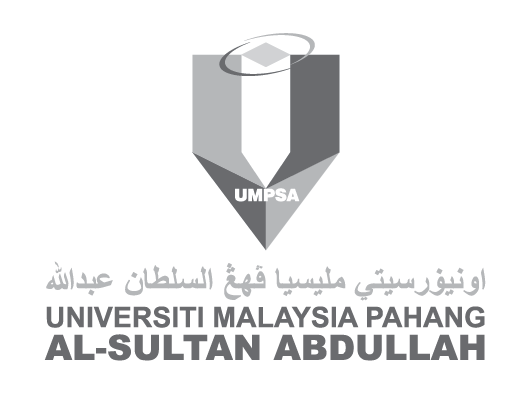Global Classroom BPS3213 Occupational Epidemiology
Global Classroom BPS3213 Occupational Epidemiology
The Faculty of Industrial Sciences and Technology (FIST), Universiti Malaysia Pahang Al-Sultan Abdullah (UMPSA), successfully organised a Global Classroom for the course BPS3213 Occupational Epidemiology on 12 June 2025 via Microsoft Teams. The session brought together academic expertise Japan, fostering international collaboration and enhancing students’ understanding of occupational and environmental epidemiology.
The Global Classroom was delivered by Dr. Muhammad Abdul Basit, the from Graduate School of Medicine, Hokkaido University, Japan. In two hours, session, he presented a comprehensive lecture on the Application of Occupational and Environmental Epidemiology, emphasising the interconnectedness of workplace and environmental health risks. The session covered fundamental concepts and definitions in epidemiology, methods for assessing workplace and community exposures, and the application of epidemiological study designs. Students were also introduced to various exposure assessment techniques for chemical, physical, ergonomic, and psychosocial risks, as well as the challenges of integrating data from occupational records and environmental monitoring systems.
To strengthen practical understanding, real-world case studies were discussed, including asbestos exposure leading to mesothelioma, industrial chemical spills affecting workers and nearby communities, and the public health impacts of biomass burning. Through these scenarios, students learned how to apply epidemiologic methods to evaluate risk, address bias and confounding factors, and translate scientific evidence into effective policies and intervention strategies.
In addition to academic content, students were introduced to scholarship opportunities for further studies at universities in Japan, opening doors for international academic advancement. Dr. Muhammad Abdul Basit also shared his first-hand experiences in Japan during the COVID-19 pandemic, offering valuable perspectives on how public health measures were implemented and adapted in a global crisis. The Global Classroom not only enriched students’ knowledge but also inspired them to explore global opportunities and consider the broader context of public health practice. The initiative reflects UMPSA’s commitment to delivering globally relevant, industry-linked education while promoting public health and sustainability. The faculty extends its appreciation to speakers and CIREL for making this knowledge-sharing session a success.
Dr. Nor Ashikin Sopian

